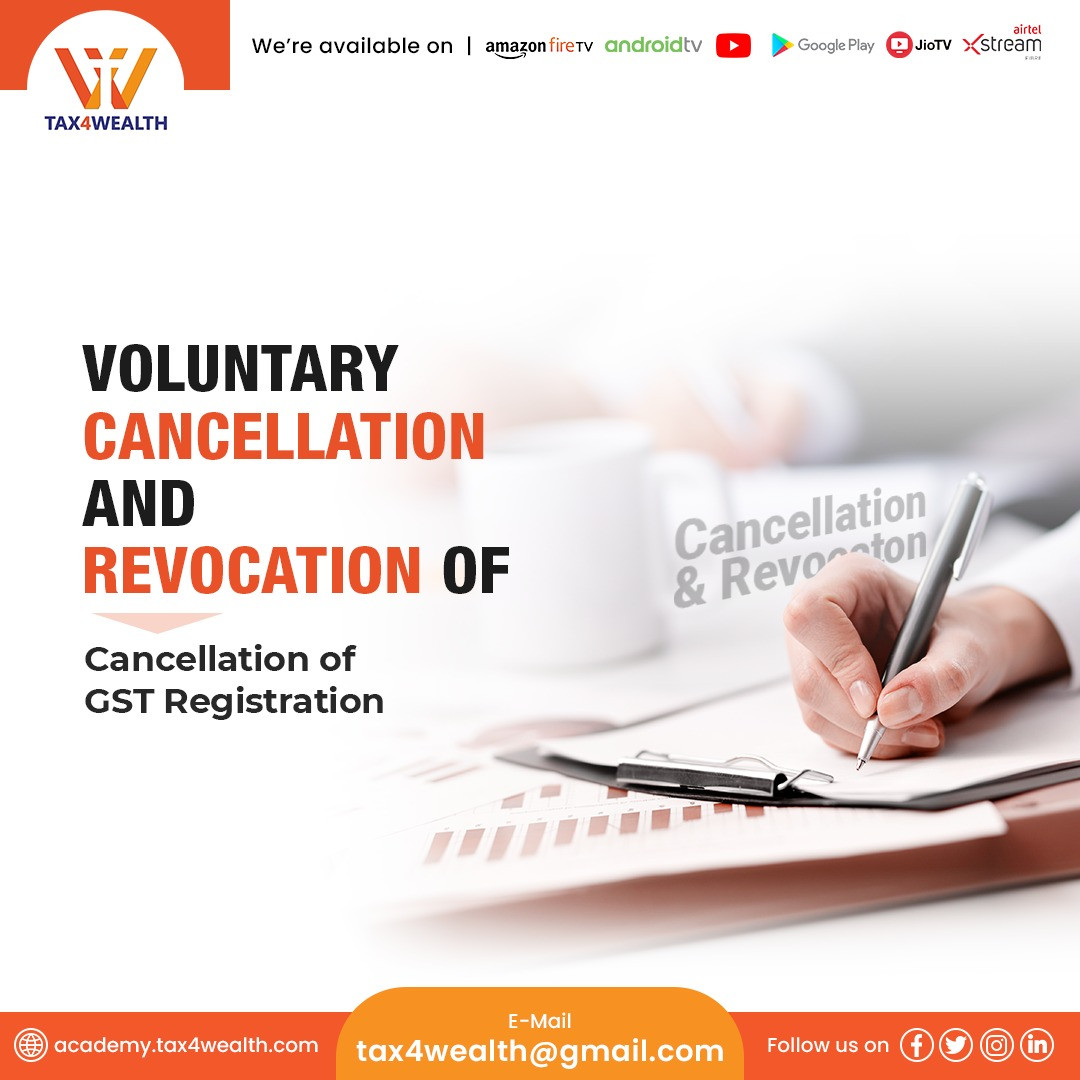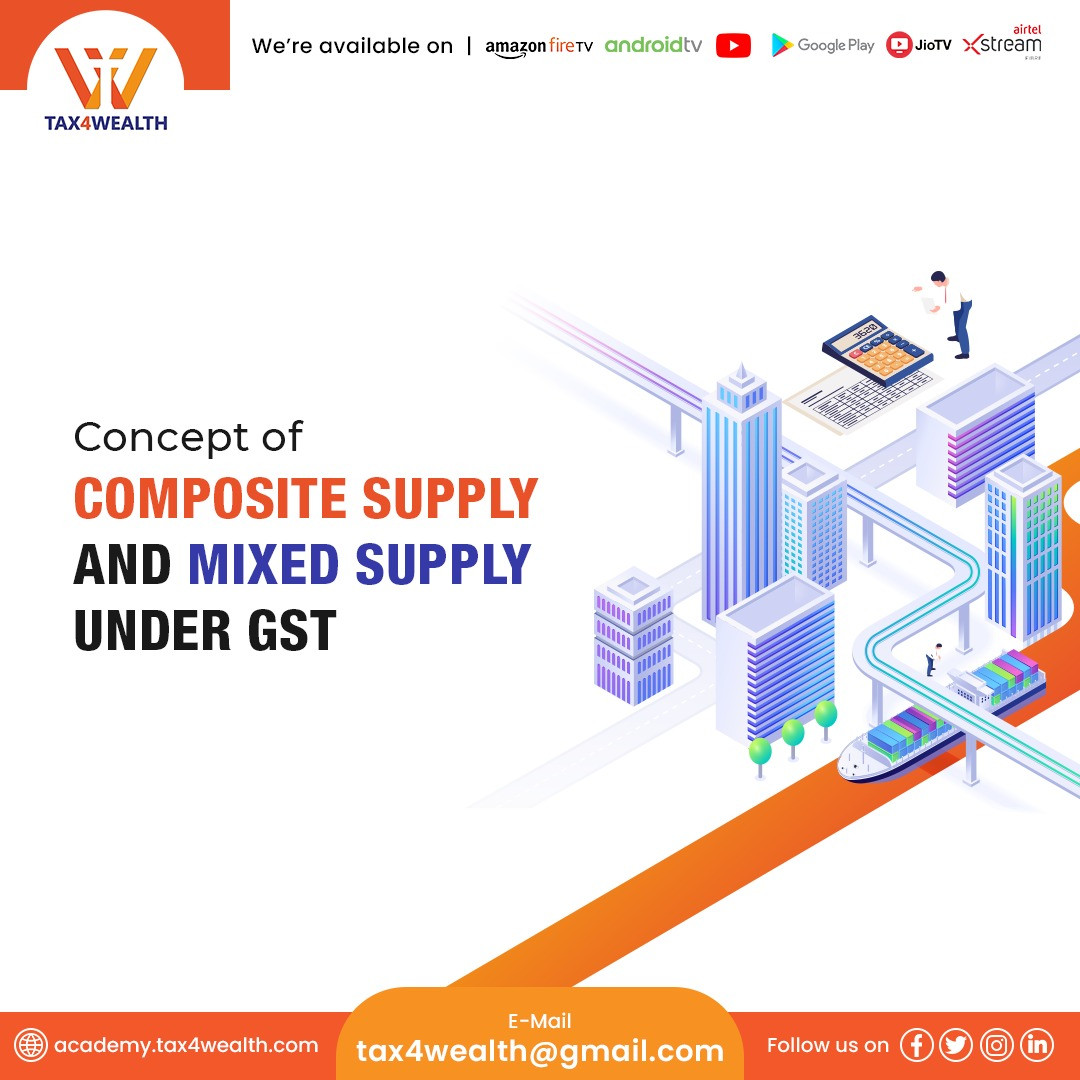Types of Invoice and Its Format Under The GST
What is an Invoice?
The term invoice is defined as a commercial document that is issued by a supplier to the buyer for the sale of goods and/or services. Normally, an invoice is also known as a bill. It contains the details of the transaction made including the quantity, price, date, name of the product, etc. Apart from that, the payment terms are also mentioned in the invoice whether it is cash payment or online payment, or cheque payment.
Types of GST Invoice:-
The details regarding the types of GST invoices are provided below;
Tax Invoice:-
A tax invoice is a mandatory invoice for every business or individual who gets registration under GST. It is an invoice that is issued by a supplier for supplies made by him to the buyer whether the supplies may be of goods or services. Normally, a tax invoice is issued for the taxable goods and/or services supplied to either B2B or B2C clients. Apart from that, it can also be used for stock transfers where there is an inter-state supply.
Bill of Supply:-
It is generally issued for the goods and/or services supplied which are exempted from tax during or at the time of supply of goods and/or services.
Refund Voucher:-
Refund Voucher issued if a receipt voucher is already issued in advance and the supply of goods and/or service is no longer required in respect of receipt voucher.
Payment Voucher:-
When there is a liability of reverse charge on the part of the recipient, in such case payment voucher is required to be issued while making the payment.
Debit and Credit Notes:-
A debit note is issued in case the value of goods and/or services are less as compared to the taxable value of the goods and/or service as that of the price mentioned on the tax invoice earlier. Likewise, a credit note is issued in case the value of goods and/or services are more as compared to the taxable value of the goods and/or service as that of the price mentioned on the tax invoice earlier.
ISD Invoice:-
Generally, it is issued in respect of input tax credit distribution among the branches that are holding a single PAN.
Delivery Challan:-
The issuance of a delivery challan is required when the goods are ready for transportation prior to the preparation of the tax invoice.
Bill of Supply in GST:-
It is issued in case of GST rates are not applicable on sales made. As per the provisions of GST law, the below are the contents of a bill of supply;
-
Supplier's Name and address
-
Supplier's GSTIN
-
Bill of supply Number
-
Date of issue
-
Recipient's Name
-
Recipient's address
-
Recipient's GSTIN
-
HSN Code if needed (Please note HSN code is not needed when the turnover is less than 1.5 crores, Apart from that 2 digit HSN code is needed when the turnover is between 1 to 5 crores and if it exceeds Rs. 5 crores then 4 digit HSN code is required)
-
Product Description
-
Value after Adjustments
-
Supplier's signature
Supplementary and Revised Invoices in GST:-
The dealers who are liable to pay tax must apply for the provisional GST registration to carry out all the legal formalities that are required for permanent registration and accordingly, they can obtain a permanent GST registration certificate. According to GST law, all the invoices should be issued within a specified time including the GST implementation date and date of issue of the registration certificate under GST.
A revised invoice against the previous invoice issued within the specified time if the supplier wants to do so. The amended invoice must be issued within 30 days of the issuance of the certificate of registration under GST.
On the contrary, in case of any error or deficiency is discovered in the invoice that is already issued, a supplementary tax invoice can also be issued to the relevant taxable person. A supplementary tax invoice can be treated as debit and/or credit note.
Invoice Format in GST:-
A tax invoice provides the details of the goods and/or services including the price which has to be paid. Some of the particulars of the tax invoice are provided below;
-
Supplier's Name and address
-
Supplier's GSTIN
-
Serial number
-
Date of issue
-
Name and address of the recipient
-
Total Value
-
Quantity/Unique Quantity Code
-
Place of supply in case of inter-state supply
-
Delivery Address
-
Reverse Charge if any
-
Taxable Value
-
Rate of Tax
-
Tax Charged Amount
-
Recipient's State and its code when the taxable supply exceeds 50,000/-
-
HSN Code
-
Product Description
-
Supplier's Signature
When the goods are being exported, in that case, the tax invoice will contain the details of endorsement which the states supply meant for including the details of Payment of IGST" Or "Supply Meant for Export under Bond or Letter of Undertaking without payment of IGST". In such case, the tax invoice will contain the below-mentioned particulars;
-
Recipient's Name and Address
-
Address of Delivery
-
Name of Destination Country
-
Date of Application for Export
-
Number of Application For Export
Invoicing Time limits in GST:-
The details of time limits in GST are provided in the table below;
|
GST Registrants |
Time Limit |
|
|
|
|
Individual GST Registrants |
Within 30 days from the supply date |
|
Banks, NBFCs, financial institutions, companies, etc. |
Within 45 days from the date supply date |
|
NBFCs, Telecom Operators, banking companies, Insurance companies, etc. |
Before the supplier record the details of supply in the books of accounts Or Before the expiration of the quarter in which the supply was made. |
-
-
-
Date of Application for Export
-
Number of Application For Export
Invoicing Time limits in GST:-
The details of time limits in GST are provided in the table below;
Invoice Changing in GST':-
There may be circumstances when my invoice could have been issued wrongly, in those scenarios some changes are needed to be done in the tax invoice that is already been issued. Those amendments or changes are called as rectification of invoices. Normally, the rectification of invoices is submitted according to the monthly return of invoices.
Invoice Signing Under GST:-
As per the provisions under Section 31 of CGST Act, 2017 a tax invoice is issued according to Rule1 of Invoice Rules 2017 that provides that invoice has to be signed by an authorized person or supplier as specified by the supplier whether it may be in manual or digital. It simply means that the tax invoice must be signed by an authorized representative or supplier of the goods and/or services.
Goods Transport Agency:-
As per the guidelines under the provision of Notification No. 11/2017-Central Tax (Rate) 2017, A Goods Transport Agency is a person who provides transportation services by road and issues a consignment note for such transportation services. It simply means that when the supplier engages another transportation service the same consignment note can also be used as a Goods Transport Agency.
Knocked Down Goods:-
There may be cases when it becomes impossible to supply the goods in a single transportation means. In such cases, logistics departments are far more convenient to send the goods from one place to another in different cities instead of a single vehicle. The same is known as Semi Knocked Down or Completely Knocked down Goods. The aforesaid concept can be better analyzed with an example. For example, when a crane is supplied from Delhi to Uttarakhand under a single invoice but if we consider the same under the context of logistics then it can be seen that the vehicle is partially knocked down and the same will be supplied in more than one vehicle.
Receipt Voucher:-
Generally, a receipt voucher is issued where there is an advance payment for goods and/or services that are yet to be supplied to the buyer. The format of the receipt voucher according to the guidelines provided under CGST Rules, 2017 are mentioned below;
-
Supplier's Name and address
-
Supplier's GSTIN
-
Serial number
-
Date of issue
-
Name and address of the recipient
-
Total Value
-
Quantity/Unique Quantity Code
-
Place of supply in case of inter-state supply
-
Delivery Address
-
Reverse Charge if any
-
Taxable Value
-
Rate of Tax
-
Tax Charged Amount
-
Recipient's State and its code when the taxable supply exceeds 50,000/-
-
HSN Code
-
Product Description
-
Supplier's Signature
These are the exceptions for the issuance of the receipt voucher;
In case, when receiving the advance tax is not predicted or calculated then the tax rate will be 18%
In the case of the advance receipt, supply cannot be determined then the supply will be considered as inter-state supply.
E-way Bill:-
E-Way Bill is an Electronic Bill that is generated for the movement of goods on the E-Way Bill Portal. However, E-Way is meant to be issued for a registered GST supplier. The E- Way bill can also be generated through API or SMS or Android Application. Accordingly, a unique E-way Bill Number will be generated and the same is allocated to the concerned suppliers.
For more information, Visit us at: https://academy.tax4wealth.com/
Related News
No comments yet, Be the first to comment.













